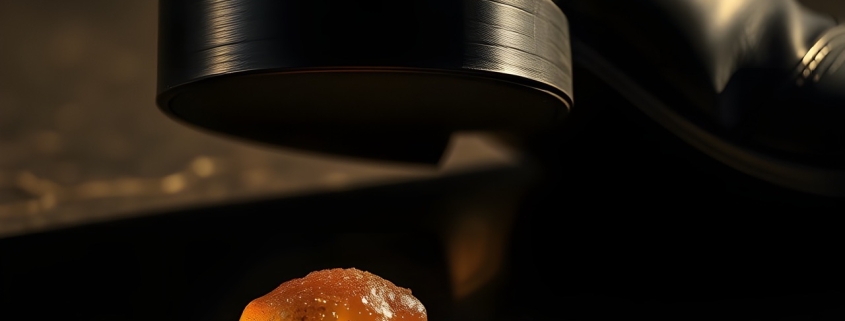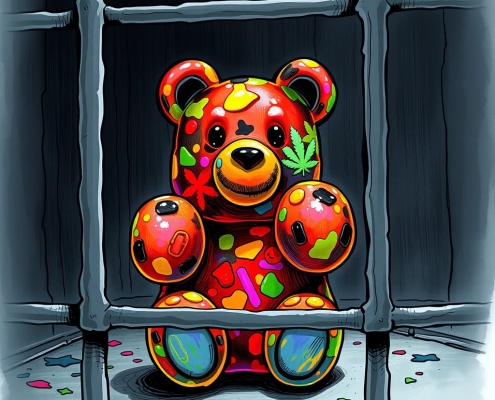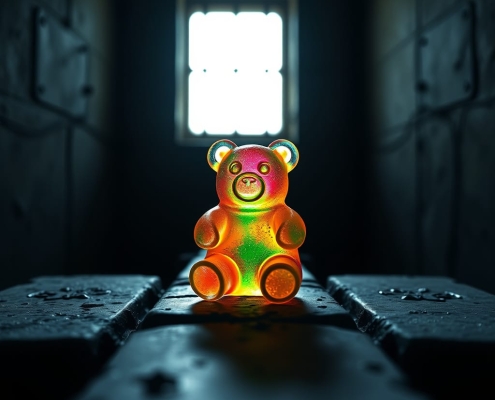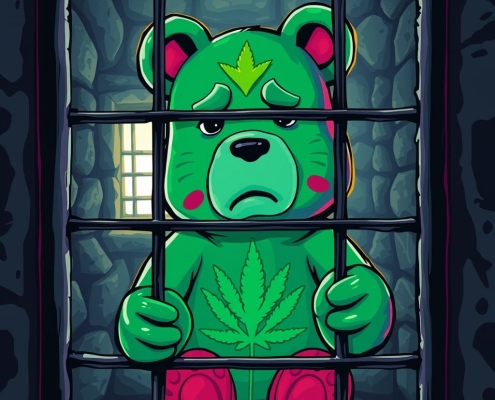Dear Esteemed Government Official
We know you’re diligently drafting cannabis laws, but before you mix CBD and THC like a questionable smoothie, let’s break it down!
CBD is like that responsible friend who insists on driving everyone home after a party—chill, dependable, and never causing a ruckus. It’s perfect for when you want to unwind without feeling like you just took a wild rollercoaster ride!
For your notes before the next meeting, here’s the formal version:
CBD:
CBD interacts primarily with the body’s endocannabinoid system (ECS) but doesn’t bind directly to cannabinoid receptors like THC. Instead, it influences the ECS by inhibiting the breakdown of anandamide, a neurotransmitter that promotes happiness and well-being. This interaction is believed to contribute to its calming and anti-inflammatory effects.
Common Uses:
- Anxiety and Stress Relief: Many users report feeling calmer and more focused with CBD.
- Chronic Pain Management: Often used for conditions like arthritis, fibromyalgia, and general inflammation.
- Sleep Disorders: Some find that CBD helps improve sleep quality and duration.
- Skin Conditions: Topical CBD may assist with acne, eczema, and other skin issues due to its anti-inflammatory properties.
Now, on to THC, the life of the party! This is the friend who shows up with snacks, wild dance moves, and stories that get wilder with each passing hour. Sure, they can elevate your mood, but you might wake up wondering why you thought a karaoke rendition of ‘Bohemian Rhapsody’ was a good idea.
Meeting notes again, here’s the formal version:
THC:
THC binds directly to the CB1 receptors in the brain, leading to the psychoactive effects users experience. This binding is responsible for feelings of euphoria, increased appetite, and altered sensory perception. THC also influences dopamine levels, enhancing mood and relaxation.
Common Uses:
- Pain Relief: Particularly effective for chronic pain conditions, including migraines and nerve pain.
- Appetite Stimulation: Commonly used by patients undergoing treatments like chemotherapy to combat loss of appetite.
- Nausea and Vomiting: Effective for alleviating nausea, especially in medical contexts.
- Sleep Aid: Many find THC helps them fall asleep faster, although it may affect sleep cycles.
So, let’s keep it clear: CBD is the zen master, while THC is the party starter. We need laws that respect both their unique vibes! After all, nobody wants a legal system that thinks every cannabis product is just a gateway to a spontaneous dance-off!
Let’s not turn cannabis laws into a comedy of errors! Let’s clarify the differences, acknowledge the unique benefits of each compound, and create a legal framework that empowers consumers to make informed choices.
Keep it clear, keep it fun, and let’s not throw the entire cannabis garden into one big muddy pot!
Sincerely,
The Cannabis Connoisseurs








Leave a Reply
Want to join the discussion?Feel free to contribute!